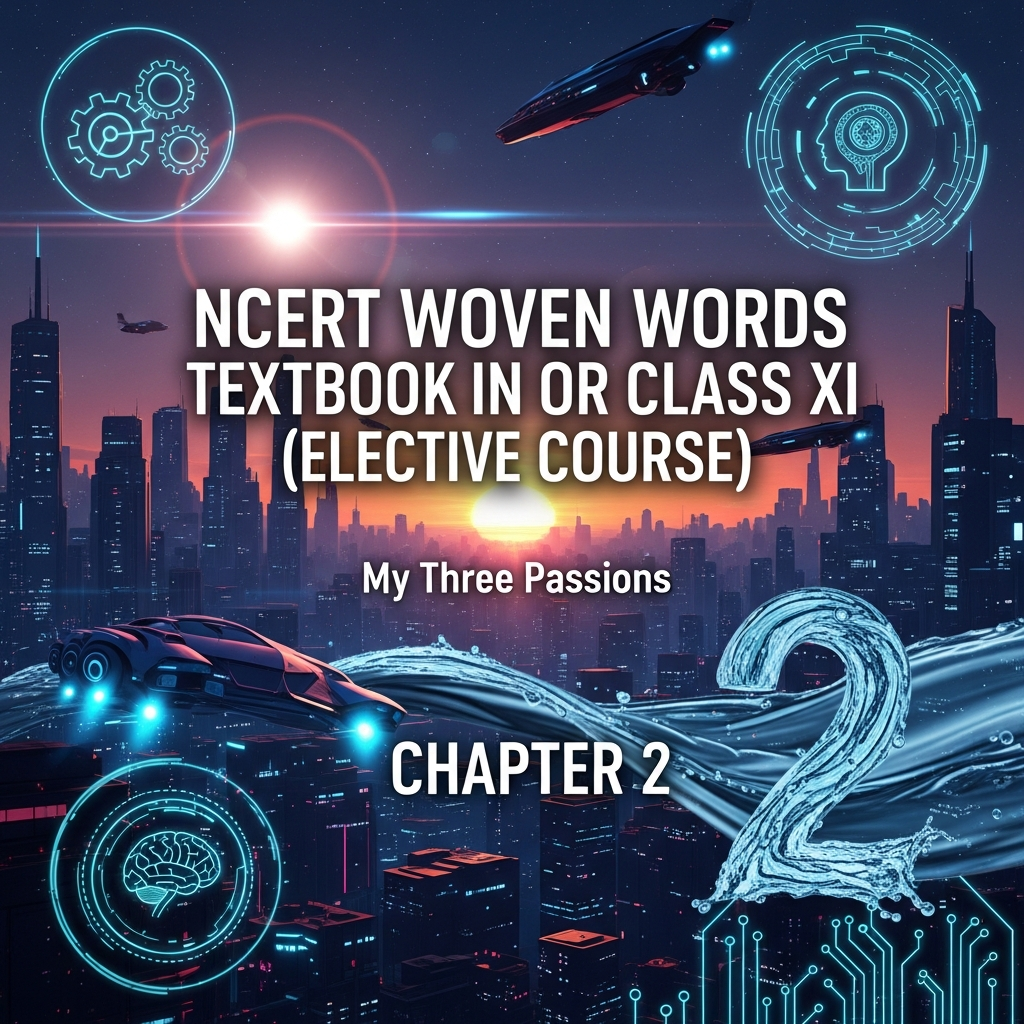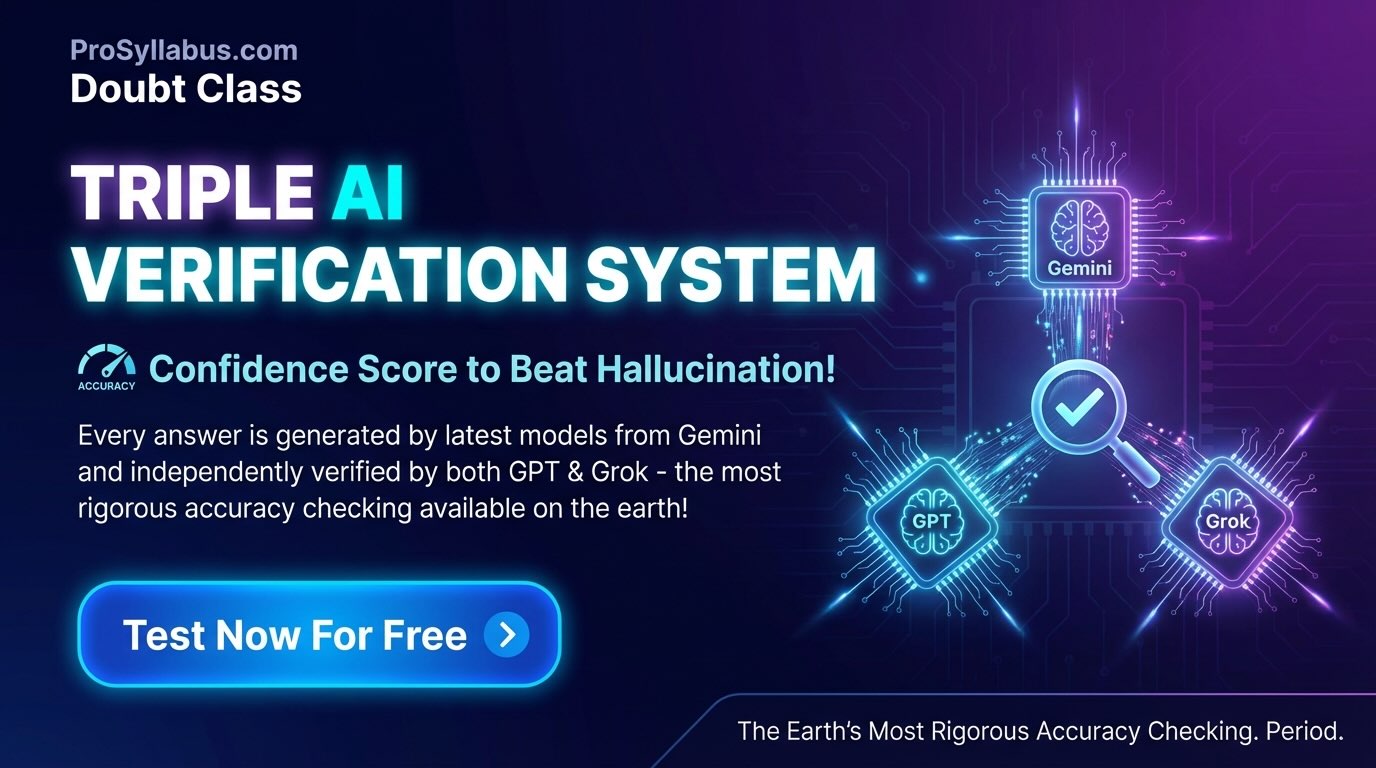Complete Summary and Solutions for My Three Passions – NCERT Class XI English Woven Words, Essay Section, Chapter 2 – Explanation, Analysis, Questions, Answers
Detailed summary and explanation of Chapter 2 'My Three Passions' by Bertrand Russell from the Woven Words English textbook essay section for Class XI (Elective Course), covering themes of love, knowledge, pity, and their impact on life with all NCERT questions, answers, and comprehension exercises.
Updated: 2 months ago

My Three Passions
Bertrand Russell | Woven Words Prose - Ultimate Study Guide 2025
Introduction to Prose - Woven Words
Prose is straightforward writing that mirrors everyday speech, used in essays, autobiographies, and narratives to convey ideas, experiences, or arguments with clarity and depth. Unlike poetry's rhythm, prose relies on logical flow, vivid imagery, and reflective tone to engage readers emotionally and intellectually.
In autobiographical excerpts like Russell's, personal passions reveal life's philosophical undercurrents, blending introspection with universal humanism. This passage exemplifies confessional prose, where raw emotion meets analytical precision, akin to King's ethical explorations later in the unit.
Prose's expansiveness allows nuanced self-examination, transforming private turmoil into shared wisdom, much like the reflective economy of suggested essays.
Key Elements
- Forms: Narrative (story-like), expository (explanatory), reflective (introspective).
- Devices: Metaphor, contrast, rhythmic phrasing for emotional resonance.
- Themes: Human suffering, quest for meaning, redemptive love.
- Economy: Precise diction elevates personal anecdote to profound insight.
Reprint 2025-26
Author: Bertrand Russell (1872–1970)
Bertrand Russell, the British philosopher, mathematician, and Nobel laureate, authored influential works on logic, ethics, and social issues. Educated at Cambridge, he co-authored Principia Mathematica and championed pacifism, atheism, and education reform. His autobiography reflects a life of intellectual rigor and humanitarian passion.
Russell's prose is lucid yet poetic, probing existence's joys and sorrows with unflinching honesty.
Major Works
- Principia Mathematica (1910–1913), The Problems of Philosophy (1912)
- Autobiography (1967–1969), Nobel Prize in Literature (1950)
Key Themes
- Intellectual pursuit vs. human suffering
- Love as transcendence, pity as grounding
- Scientific method in philosophy
Style
Reflective, metaphorical; balances passion with reason in elegant prose.
Reprint 2025-26
Full Passage Text: My Three Passions
Reprint 2025-26
Passage Summary: English & Hindi (Detailed Overview)
English Summary (Approx. 1 Page)
Russell reflects on three governing passions: love's ecstatic relief from loneliness and glimpse of divine union; knowledge's quest to fathom human hearts, stellar mysteries, and mathematical order; and pity's grounding anguish over mankind's suffering—from famine and torture to poverty's mockery of life's potential. Windswept across despair's ocean, these forces elevate yet tether him to earth, rendering a life of partial triumphs and shared pain profoundly worthwhile.
हिंदी सारांश (संक्षिप्त)
रसेल तीन प्रबल जुनूनों पर चिंतन करते हैं: प्रेम की लालसा जो एकांत को दूर कर स्वर्गीय आनंद देती है; ज्ञान की खोज जो मानव हृदय, तारों की चमक और गणितीय शक्ति को समझने की इच्छा रखती है; तथा मानव पीड़ा पर असह्य करुणा जो पृथ्वी पर लौटाती है। ये जुनून उन्हें आनंद की गहराई से निराशा की सीमा तक ले जाते हैं, फिर भी जीवन को जीने योग्य बनाते हैं।
Reprint 2025-26
Structure & Analysis: Key Paragraphs & Devices
Overview
The passage structures as a tripartite reflection: introductory metaphor of winds, sequential exploration of each passion, and concluding affirmation. Contrasts elevation (love/knowledge) with descent (pity), using rhythmic prose for philosophical depth.
Structure in Phases
- Introduction: Winds metaphor, vocab-rich turmoil (Para 1).
- Body: Love (ecstasy, relief, vision; Para 2); Knowledge (hearts, stars, numbers; Para 3); Pity (earthly echoes; Para 4).
- Conclusion: Life's worth despite suffering (Para 5).
Points to Ponder
- Imagery: "Ocean of anguish," "unfathomable abyss"—vividly evokes existential dread.
- Narrative Voice: First-person confessional; humble admissions ("a little... achieved").
- Thematic Insight: Humanism—passions as dual forces of aspiration and empathy.
Tip: Note triadic balance—each passion builds emotional crescendo.
Understanding the Text
1. Why does Russell call the three passions ‘simple’?
- They are elemental, primal drives—love, knowledge, pity—uncomplicated in essence yet profoundly influential, like basic forces shaping existence beyond intellectual abstraction.
- Contrast with complexity: Their "overwhelmingly strong" impact belies simplicity, underscoring universality over sophistication.
2. Why has he compared the three passions to great winds?
- Winds symbolize uncontrollable, directional forces—blowing him "hither and thither" in turmoil, evoking life's unpredictable, tempestuous journey over anguish's ocean.
- Metaphor captures dual nature: Propelling toward ecstasy/despair, yet sustaining motion amid chaos.
3. What, according to Russell, is the importance of love in life?
- Love offers ecstasy worth sacrificing life for, relieves profound loneliness by bridging the "unfathomable abyss," and provides a "mystic miniature" vision of heavenly union.
- Ultimately attainable ("this is what at least I have found"), it humanizes existence's void.
4. How does Russell’s definition of knowledge differ from what is commonly understood by the term?
- Commonly factual/accumulative; Russell's is passionate, holistic—seeking hearts' depths, cosmic why (stars), and abstract sway (Pythagorean numbers), admitting modest achievement.
- Emphasizes experiential apprehension over rote utility.
5. Why is the quality of pity earth-bound while the other two passions are elevating?
- Love/knowledge aspire heavenward (ecstasy, understanding); pity anchors to earthly suffering—famine, torture, loneliness—echoing pain's cries, mocking ideals, compelling futile alleviation.
- Thus, it "brought me back to earth," grounding transcendence in shared humanity.
6. How have the three passions contributed to the quality of Russell’s life?
- They infuse intensity—winds of joy/despair—yielding partial fulfillment (love found, knowledge glimpsed) amid suffering's weight, yet affirming life's worth for reliving.
- Balance yields resilient humanism: Elevation tempers by empathy.
Talking about the Passage - Discussion Prompts
Discuss in pairs or small groups
1. How do passions shape personal philosophy?
- Russell's triad as life's compass; explore: Which passion dominates your life—love, knowledge, or pity?
- Modern ties: Social media's "winds"—do they amplify or dilute such forces?
- Personal: Share a "verge of despair" moment redeemed by passion.
2. Pity vs. Action: Ethical Dilemma
- "I long to alleviate... but I cannot"—discuss: Does awareness without action suffice, or demand activism?
- Cultural: Eastern compassion vs. Western intervention—Russell's bridge?
- Extension: Rewrite conclusion with resolved pity—what changes?
Appreciation & Analysis
TRY THIS OUT: Paraphrase a paragraph and note the shift in tone. Comment on Russell's use of metaphor to elevate autobiography.
- Paraphrase (Love para): I wanted love for happiness, to end being alone, and to see paradise in it. I got some.
- Shift: Loses poetic intensity—prosaic dulls "ecstasy so great," "mystic miniature."
- Russell's metaphors (winds, ocean, abyss) transform confession into symphonic reflection, blending vulnerability with grandeur for timeless resonance.
Language Work
1. Vocabulary from Context
| Word/Phrase | Meaning (Inferred) | Example |
|---|---|---|
| wayward course | Erratic, unpredictable path | Life's meandering journey |
| ocean of anguish | Vast sea of suffering | Deep emotional turmoil |
| verge of despair | Edge of hopelessness | Near total despondency |
| mystic miniature | Symbolic small-scale vision | Love as heaven's preview |
| unfathomable abyss | Immeasurable void | Loneliness's cold emptiness |
| apprehend | Grasp intuitively | Understand Pythagorean power |
| reverberate | Echo persistently | Pain's cries in heart |
2. Rhetorical Devices
- Metaphor: Passions as "great winds"—dynamic life force.
- Contrast: Upward (heavens) vs. earth-bound pity.
- Triadic Structure: Three reasons for love; builds rhythmic emphasis.
Connection to MLK: Agape Love
How does Russell’s concept of love and pity tie up with King’s concepts of agape?
- Russell's love—redemptive union transcending loneliness—echoes agape's disinterested goodwill, spontaneous overflow for all, fulfilling sinners' deepest need without motive.
- Pity's unbearable response to suffering aligns with agape's community restoration: Both urge alleviation/forgiveness (seventy times), countering hate's brokenness with creative solidarity, recognizing interrelated harm.
- Shared ethic: Love/pity as active forces against despair/segregation, elevating humanity via non-violent, empathetic action.
Reprint 2025-26
Interactive Quiz - Test Your Understanding
10 MCQs on passage, themes, and connections. Aim for 80%+.
Suggested Reading
- ‘Ideas that have Helped Mankind’ by Bertrand Russell
- ‘Ideas that have Harmed Mankind’ by Bertrand Russell
Reprint 2025-26

Group Discussions
No forum posts available.
Easily Share with Your Tribe


